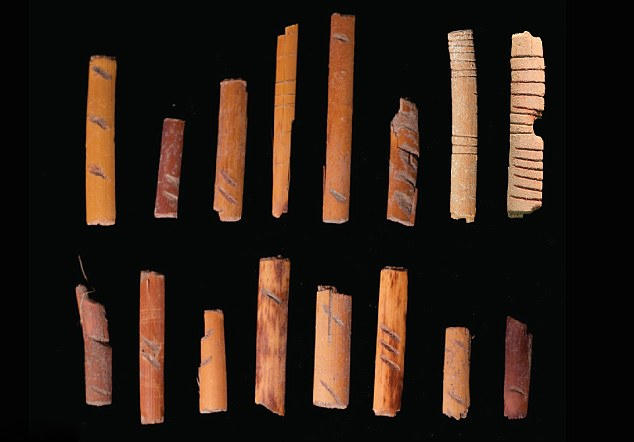We know for a fact that gambling is really, really old. We’ve got evidence of it taking place as far as the 3rd century BC, though it’s generally presumed that it has existed in one form or another for way, WAY longer. Still, most people (scientists or not) assumed that casinos are a generally new invention, as in, they’re not older than 2-3 centuries. Before then, most dealers and croupiers used to work in taverns, arenas or stadiums, generally places where people would be very likely to make a bet. There weren’t any specialized places that were meant specifically for gambling… Except, as it turns out, there were. And we wouldn’t have known about them if it wasn’t for a rather shocking discovery.
 What you’re looking at are gambling chips found in what is currently known as the oldest casino ever discovered. It was created – where else? – in a Utah, inside a cave, by an unknown tribe of Native Americans. According to researchers, there’s roughly 10,000 gambling pieces, not all of which are chips. Some represent tools used to play the various casino games, but since we don’t understand their rules it’s hard to really tell what each of the found instruments was used for. We do know that, based on the sheer number of them within the cave, this was certainly a place of much reverence for the people of the tribe.
What you’re looking at are gambling chips found in what is currently known as the oldest casino ever discovered. It was created – where else? – in a Utah, inside a cave, by an unknown tribe of Native Americans. According to researchers, there’s roughly 10,000 gambling pieces, not all of which are chips. Some represent tools used to play the various casino games, but since we don’t understand their rules it’s hard to really tell what each of the found instruments was used for. We do know that, based on the sheer number of them within the cave, this was certainly a place of much reverence for the people of the tribe.
And the kicker? According to scientists, the tools date back to the 13th century – hundreds of years before the previous record for oldest recorded casino. The cave, alongside all of its contents, was discovered in mid-2015, and have since created quite a stir due to their implications. John Ives, an archeologist working on the site, claims that pretty much every member of the tribe spent their time off hiding from the scorching sun inside the cave playing casino games, which… Honestly, isn’t really all that different from what’s happening in the present. While the site is still being investigated, it has already given us a whole lot of knowledge not just about the Native American civilization around the 13th century (which we already knew was a lot more advanced than what Columbus found two centuries later), but about the meaning of gambling within their culture in general.
